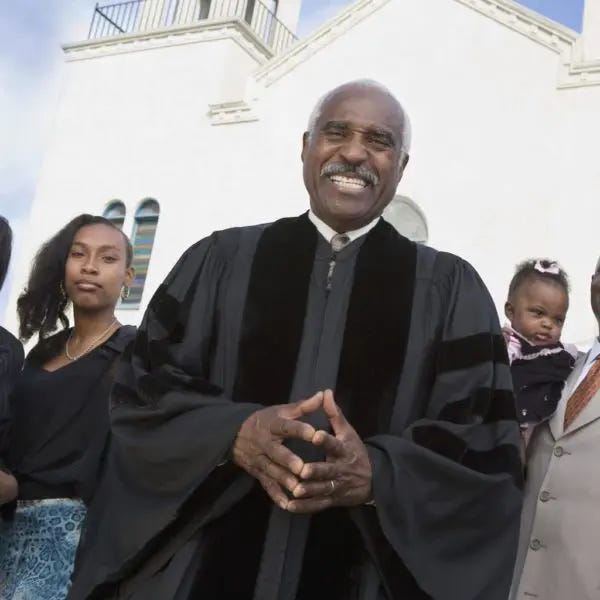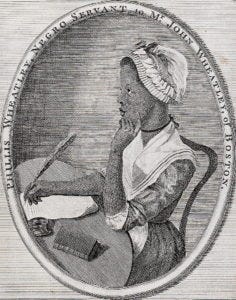The Case for Pro-Black Conservatism
By Rachel S. Ferguson
The term “anti-racist” is in the ascendency in our country, calling all to be active in the fight against racist attitudes, policies and the structural remnants of our racist history. But why be merely anti-racist when, instead, we can be pro-Black? Black Americans have a distinct and stunning set of traditions and a culture formed in the furnace of persecution. This inheritance is expressed in the Black church; Black gospel, blues, jazz, R&B and hip-hop music; soul food and Creole; Juneteenth and “Lift Every Voice and Sing”; Douglass and Hurston and Ellison and Angelou; Jet, Ebony and Essence. We could do this all day!
Zora Neale Hurston/Wikimedia Commons
To some, particularly on the left, the idea of pro-Black conservatism might seem paradoxical or even absurd. That’s because they often equate conservatism with certain policies or politicians. But as Russell Kirk and other conservative thinkers point out, conservativism is not an ideology but an attitude. As Mona Charen once put it, “The great conservative virtue is gratitude” because conservatives know that social and moral orders are an achievement of long construction and not to be lightly set aside. Human nature is fixed; neither humans nor their polities are perfectible, so we must live in the gray area between being prepared for some imperfection and prudently restraining the passions for power, sex and money that so often destroy the goodness in life. Conservatives also know that freedom and property are closely linked, and they prefer organic, voluntary organization over the collectivism of coercion. Being lovers of custom and tradition, they exult in the variety and specificity of concrete, historical communities.
Pro-Black conservatism may sound like an oxymoron, since the Black outcry against the injustice of slavery, Jim Crow and racism amounts to the claim that fundamental aspects of our society had to drastically change. But Kirk and other conservative thinkers are clear that they are not against change, only revolution. Just as a body must renew itself, so too must the body politic, or it will die. Kirk quotes Edmund Burke: “Change is the means of our preservation.” As many comments by our own Founders attest, they knew full well that the institution of racial slavery had laid the groundwork for the possible destruction of the entire Republic if the issue wasn’t resolved. Jefferson thought that the institution of slavery had made America’s future extremely precarious, unsafe to hold onto but also potentially unsafe to let go—like holding “the wolf by the ear”—and assumed that the Missouri Compromise of 1820 was the beginning of the end. The Founders hoped that the institution would decline economically and that the following generation could address it, but alas, the invention of the cotton gin sent history in the opposite direction.
Black freedom fighters did not choose revolutionary language to make their case against these injustices, but rather appealed to the principle of the American founding itself. Prince Hall argued in 1777 that “[Blacks] have in Common with all other men a Natural and Unaliable Right to that freedom which the Grat Parent of the Unavers hath Bestowed equalley on all menkind.” Poet Phyllis Wheatley, writing in the 1770s, praised the genius of Washington’s leadership while lamenting the injustice of family separation and the “wanton Tyranny” required by slavery. Douglass asked if we would live up to our own Constitution, and King brought the “blank check” of the claims of our founding documents to the bank.
Phillis Wheatley/Wikimedia Commons
Contrary to popular opinion, there’s nothing particularly conservative about racism in American history, either. In the decades following the Civil War, redemption governments in the South imposed totally novel forms of segregation on a population that had always lived and worked closely together, even as masters and slaves. These governments socially engineered an apartheid state that required the constant interference of municipal, state and federal governments to maintain, violating the property rights and freedom of association of everyone involved. Many progressives of the late 19th and early 20th centuries, such as President Woodrow Wilson (along with a majority of academics at the time), were racists who invented centralized eugenics schemes to purify the population. And, as many Black scholars have emphasized, the crushing nature of the Jim Crow South was matched by Black Laws, sundown towns and seething racial hatred in the North. America certainly has a virulently racist history, but it has involved progressives and conservatives, North and South.
With this difficult history in mind, a true and reflective conservatism would celebrate the Black Church and its vision of enduring moral order; the civil rights movement and its appeal to the American constitutional tradition; and the incredible economic, cultural and social achievements of Black America up to today. Pro-Black conservatives could point out that poverty is not a Black thing—poor Americans have always been majority white—that Black income is rising along with white and that most Black Americans, like most Americans in general, consider themselves to be middle class today. Indeed, if we care about the poor, we need to care as much about economically disadvantaged rural whites as we do about inner-city Blacks. Poverty and race in America are not straightforwardly correlated, but judging from most of our rhetoric—both left and right—you wouldn’t know it.
Conservatives also believe that individual human flourishing involves healthy families and communities—mainstays that can’t be engineered from above. Building strong institutions requires adherence to certain expectations, such as commitment to marriage, strong father figures and self-reliance. Instead of merely complaining about the weakening of moral institutions, pro-Black conservatives would do well to amplify and support Black success, starting with facts that go against some of the common narratives about Black life. For instance, recent studies show that half of Black fathers are present in the home even if they’re not married to their children’s mother, and they tend to be more involved in the lives of their kids than other dads—changing them, feeding them and spending time with them at higher rates. Blacks also are more religious than most other Americans, and they read the Bible more, pray more and are more likely to maintain conservative views on sexuality and gender. In addition, there are movements promoting Black property ownership and entrepreneurship, many of them centered in the Black church. And many Black leaders have long preached conservative values, including the importance of self-reliance and strong families. Indeed, when it came to traditional family values, the push for Black ownership, bottom-up community uplift and encouraging an excellent work ethic, Malcolm X was straightforwardly conservative.
What can pro-Black conservatives do? They can speak with intelligence and grace on the very real and tragic history of American racism. They can show interest in honoring those who have experienced racism and in affirming racism’s incompatibility with the values of a free nation. They can support Black success in all of the areas conservatives value: family cohesion, faith communities, neighborhood solidarity, effective charity, the maintenance of virtuous customs and traditions, regional particularity and support for small businesses.
Celebrating Black Americans as Black Americans has not always been easy for conservatives. In their desire to promote our common humanity against overwrought identity politics, many conservatives have fallen into the trap of enlightenment neutrality, in which individuals somehow float outside of history, ethnicity and custom. But there’s nothing conservative about that.
Finally, conservatives should not spend so much time complaining about utopian hyper-wokeism that they forget to work toward building healthy institutions that can counteract the consequences of such ideas. If you’re not putting your own ideas and institutions into the mix in powerful ways, you can’t complain when the story gets told by the other side.
Instead of bemoaning the excesses of the far left, why not capitalize on the unique aspects and traditions of Black America that already align with conservative values? Get to know them, celebrate, support and conserve them. Rather than just being against something bad, be for something good; be pro-Black.




